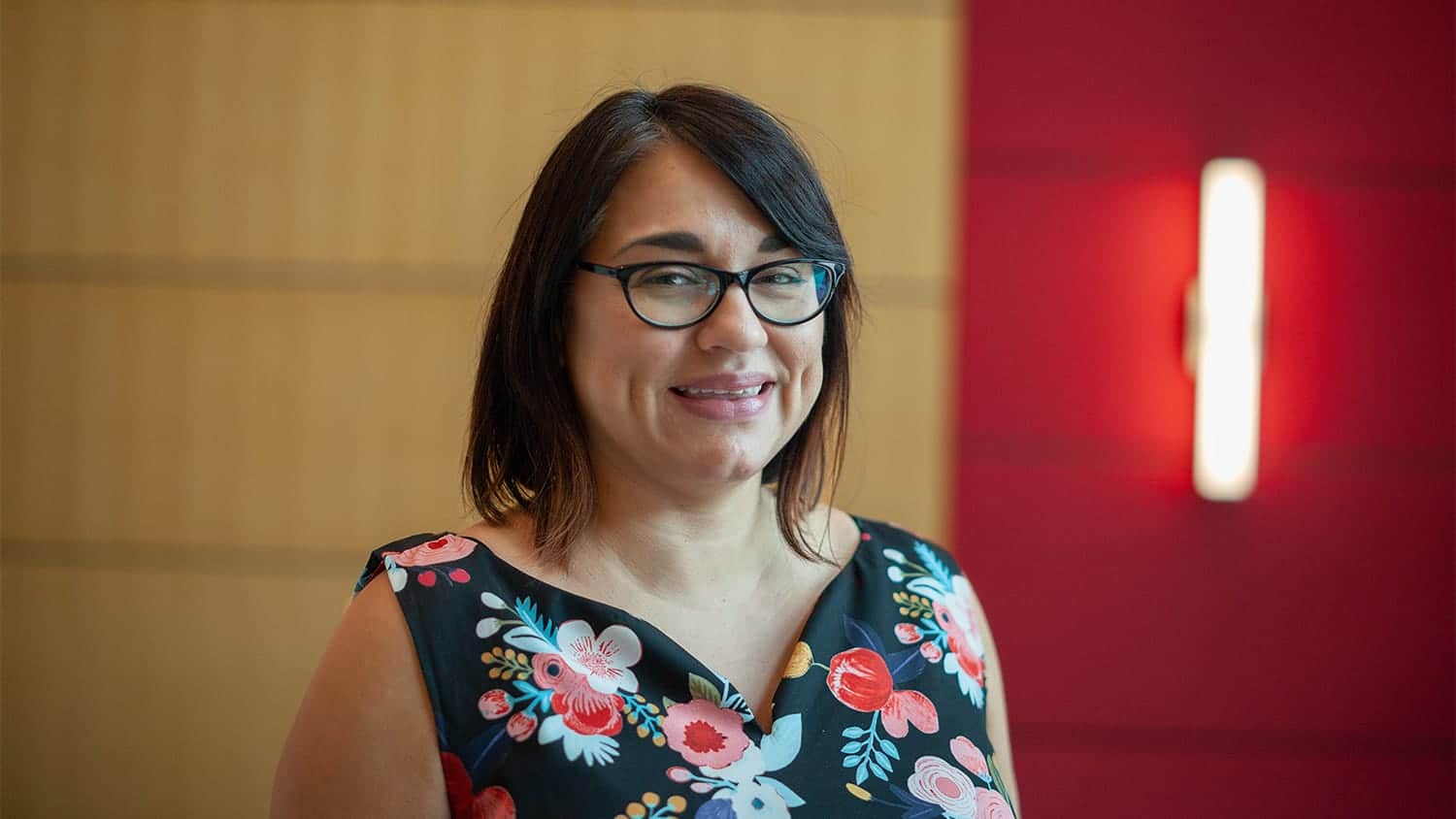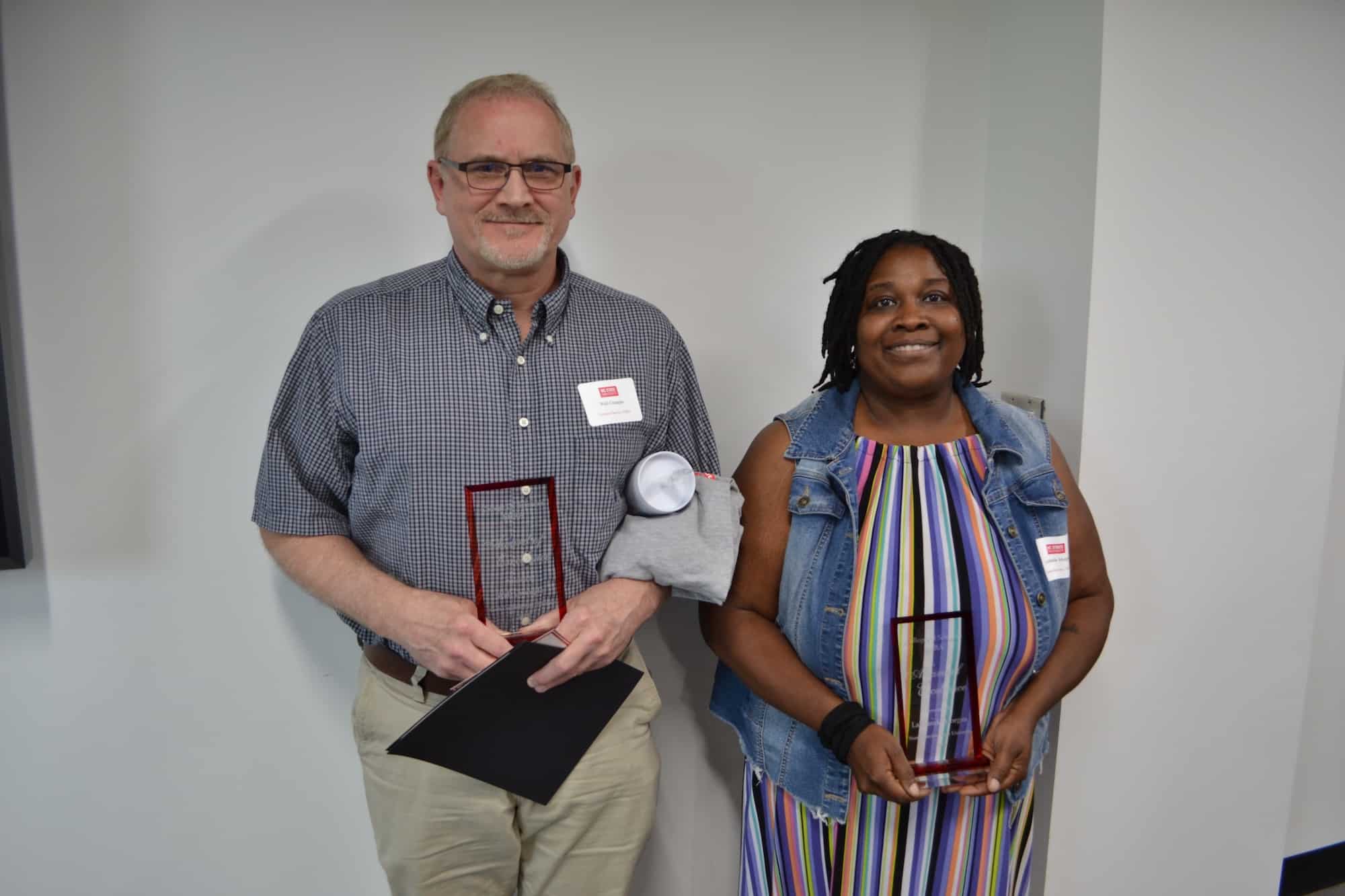Meet DELTA Faculty Fellow Melissa Ramirez

Melissa Ramirez found her calling in higher education. After earning a Bachelor of Science and Doctor of Philosophy, Biological Sciences from Virginia Tech, she continued her training with postdoctoral fellowships, starting at the Centers for Disease Control and Prevention and moving on to Colorado State University.
But something always felt incomplete. “By the end of those two postdocs, I realized that the part of my job that I liked the most was working with students, so I really wanted to make a transition from bench science to the classroom.”
She applied for the “perfect” teaching position at NC State, and can now celebrate five years as a teaching assistant professor in the Department of Biological Sciences as well as her role as the microbiology undergraduate certificate coordinator.
It was not long after Ramirez joined the Wolfpack that she became well-acquainted with DELTA. Her department had already begun work on a large course redesign for MB 351 (General Microbiology) in an effort to standardize course quality across different formats, including the online course. Just as the project has continued to improve over the years, so has Ramirez’s relationship with DELTA.
“If there’s ever an opportunity to work with DELTA, I try to take advantage of it,” she says.
And she has done exactly that. Not only does she actively participate in the Online Course Improvement Program, DELTA’s collaborative effort to ensure high-quality online instruction at NC State, she’s blazing a trail for inclusive education at NC State as a 2018-2019 DELTA Faculty Fellow.
Ramirez has made it her mission to enrich STEM with diverse identities and inclusive practices. She’s a vocal advocate of Universal Design for Learning (UDL), an approach to education that establishes accessible learning environments and gives all students equal chances to learn.
“Rather than taking the accommodation-based, retroactive approach to disabilities, we’re designing our courses so that everyone can succeed regardless of what accommodation they might need.”
This passion played a pivotal role in her decision to apply for a DELTA Faculty Fellows grant.
“Technology is going to be a part of increasing universal design, so I think it’s a natural marriage that you would start to look at online environments for how to increase universal design. DELTA would be the perfect place to explore that and to see how to make that more obvious in our courses.”
Prior to her fellowship, Ramirez and colleague Claire Gordy were awarded an Exploratory Grant to develop 3-D printed tactile teaching models for biological science students with disabilities and learning differences. With continuing support from DELTA, they’re now taking the project a step further with STEM Build, 3-D printed manipulatives that allow students to interact with what they’re learning, as they combine pieces to construct biological concepts like a puzzle and receive feedback when they’ve succeeded.
“If it’s a student who has a visual impairment, maybe the model vibrates. If it’s a student who is deaf or hard of hearing, maybe a light turns on.” When designing the learning activities that accompany the 3-D printed models, Ramirez and Gordy took a constructivist approach, prompting students to build their own understanding of how a process works.
With the new STEM Build website, the larger teaching community will have the chance to implement in their own classrooms what Ramirez, Gordy and DELTA have made possible.
But that’s not all she’s working on as a Faculty Fellow. She’s hosted workshops about the online syllabus, served on a panel with her cohort about graduate teaching assistants and even ventured outside of academic writing for the DELTA News article Increasing Universal Design for Learning: Perspective from a Faculty Fellow.
During her fellowship, she hopes to shine a light on the many ways that UDL, along with learning technologies, can be implemented in the classroom and the online learning environment.
“I really want people to be thinking about any ways that we can increase universal design in our courses, whether it’s face-to-face or online. The principles of universal design work in any sort of environment. When you have those principles in mind, you’re just designing a better course and experience for your students. I hope that faculty who are intimidated by certain aspects of technology or online education will realize that there are so many small things you can do.”
Ramirez loves that online learning makes education so widely available outside of classroom walls and campus borders. She feels strongly that students with unique circumstances and nonstandard schedules deserve the same enriching learning experience as traditional students.
“I think that NC State does a really good job of doing that. It’s a huge opportunity for NC State to be a leader,” she says, noting DELTA’s role in the process. “It’s so fun to have an idea and for DELTA to say ‘This is how you can do it.’ It’s not just the technical expertise –– everything that DELTA does is rooted in evidence-based instructional design. It’s really amazing.”
She began her NC State career teaching online and hasn’t stopped since. In that time, she’s learned that technology’s unpredictability is thrilling, fun and challenging all at once. Fortunately, she’s also learned how to address problems when they arise.
“I don’t have control of how students interact with my Moodle site. You have no idea where someone’s going to click. Giving students multiple pathways to the same place is challenging to predict, so I have to be redundant to make it obvious. Not every student is going to need that, but for the student’s that do, it’s going to make all the difference.”
Additionally, it’s become clear to Ramirez that the way she learns best is not always shared by her students. With universal design in mind, she makes sure to offer students multiple learning options like videos, transcripts and case studies so they can choose the methods that best support their personal success. This has become her favorite way to teach with technology.
“By asking the students what they think would be helpful, it gets me to consider their perspective as well. Being willing to say that I might not know the best way for a student to learn –– that’s okay. I should try my best to provide as many opportunities for them to access the content. By asking them, they help me.”
When asked where she thinks instructional technology is heading, Ramirez foresees a rich and exciting future. She’s inspired by Teaching Associate Professor Maria Gallardo-Williams in the Department of Chemistry, whose work to virtualize organic chemistry labs with DELTA is breaking new ground for virtual reality in education. She also predicts a rise in student demand for learning technologies as they become more widespread and easier to use.
Ultimately, she looks forward to using her voice as DELTA Faculty Fellow.
“[The program] is really based on your passion. For me, that was universal design in online education. Being surrounded by people who help you cultivate that message and then disseminate it to the wider NC State community is huge. So many opportunities come from being willing to let people know what your passions are and being willing to talk about it. DELTA does a great job of amplifying our voices as faculty.”
This post was originally published in DELTA News.
- Categories:


